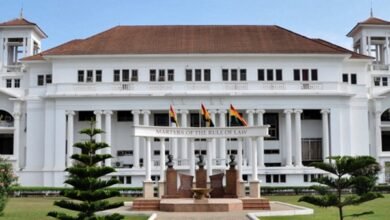Southern Africa : towards a common Visa to boost the region
Five Southern African countries—Angola, Botswana, Namibia, Zambia, and Zimbabwe—are set to introduce a common visa inspired by the European Schengen model to facilitate tourist travel and stimulate regional economic development.

In a promising initiative to boost tourism in the region, five Southern African countries—Angola, Botswana, Namibia, Zambia, and Zimbabwe—are poised to take a major step by establishing a common visa inspired by the European Schengen model. This decision, announced at the Kavango-Zambezi (KaZa) Regional Heads of State Summit in Livingstone, Zambia, on May 31, aims to facilitate tourist movement while promoting economic development through sustainable tourism.
Angola, Botswana, and Namibia will soon join the « KaZa Univisa » program, a single visa that already allows citizens of 62 countries to visit Zambia and Zimbabwe and take a day trip to Botswana. This common visa, costing $50, offers 30-day validity over a 12-month period, provided the holder remains within participating countries.
A Regional ‘Schengen Visa’ to extend to 16 countries
The leaders of the five nations have expressed their ambition to gradually extend the use of this regional « Schengen visa » to the entire Southern African Development Community (SADC), which includes 16 countries in the region. This initiative aims to facilitate tourist travel and stimulate regional economic development.
The KaZa region, rich in biodiversity and iconic natural attractions like Victoria Falls and the Okavango Delta, has identified tourism as one of its main socio-economic pillars. However, the requirement for tourists to obtain specific visas for each country is a major obstacle to the development of cross-border tourism. By removing these administrative barriers, the « KaZa Univisa » is expected to increase the number of tourist arrivals and the duration of their stay in the region, generating substantial economic benefits for the participating countries.
The « KaZa Univisa » initiative is not only beneficial for tourists but also presents advantages for local populations. By facilitating travel and increasing the number of visitors, it will create job opportunities and stimulate local economies. The hospitality, restaurant, transport, and tourism-related service sectors will directly benefit from the increased tourist flows.
Simplifying Visa regimes can have a significant positive impact on the continent’s economy and tourism
The establishment of this common visa represents a significant advancement for the KaZa region’s tourism sector. It could inspire other African country groups to follow the path of greater tourism integration. Regional leaders hope this initiative will encourage more visitors to explore the natural wonders of Southern Africa while strengthening economic and cultural ties between member countries.
In Africa, complex visa procedures hinder the development of tourism and economic integration. This issue hampers the mobility of people and limits economic opportunities. For example, many African countries require visas for citizens of other African nations, making intra-continental travel costly and complicated.
Some regions have taken measures to address this problem. East Africa introduced a single visa for Kenya, Rwanda, and Uganda, facilitating tourist travel. Similarly, the Kavango-Zambezi (KaZa) region in Southern Africa implemented the « KaZa Univisa » for Zambia and Zimbabwe, with plans to extend it to Angola, Botswana, and Namibia.
Furthermore, some countries, such as Rwanda, Benin, and Senegal, have abolished visas for African citizens, thus encouraging intra-African tourism and business. These initiatives demonstrate that simplifying visa regimes can have a significantly positive impact on the continent’s economy and tourism.
Meanwhile, the African Union is working on the adoption of a common African passport. This project aims to eliminate all visas for African citizens traveling within the continent. This initiative seeks to strengthen pan-African integration and cooperation, thereby facilitating travel, trade exchanges, and economic opportunities.






